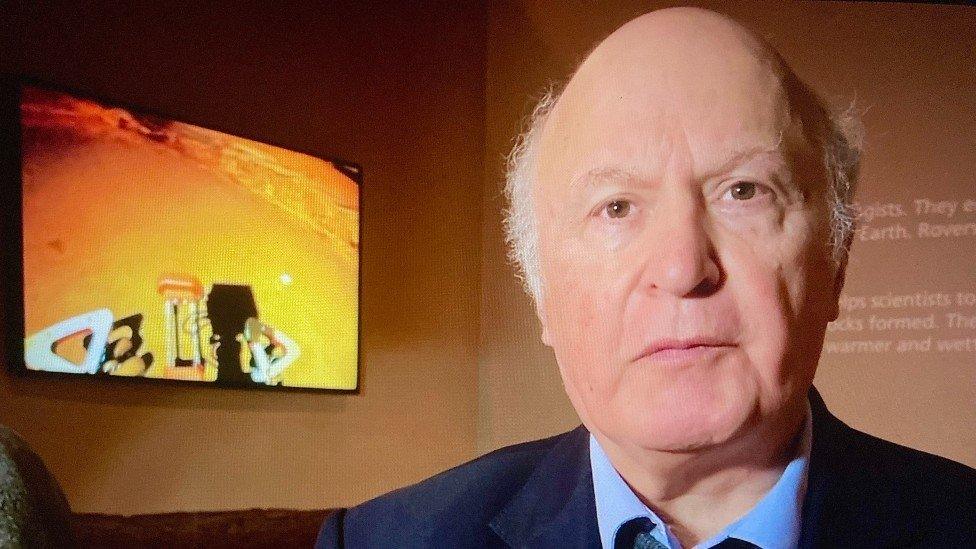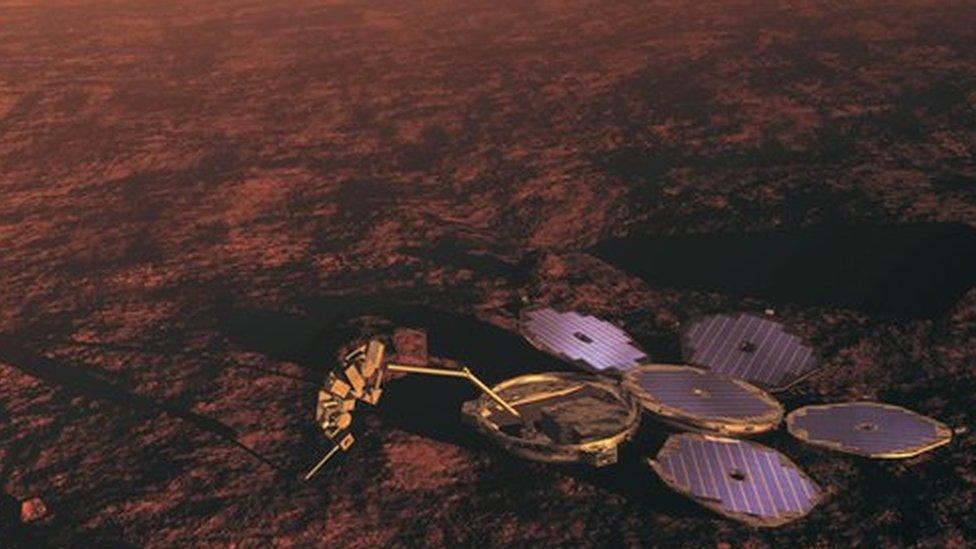Beagle 2: Failed Mars mission influencing future exploration
- Published

Beagle 2 may have collected scientific data for months but was not able to send any of it back to Earth
Twenty years after the UK's failed mission to Mars that hoped to detect life, a scientist reflects on what happened.
On Christmas Day 2003, experts from the University of Leicester, who were working on the Beagle 2 mission, waited for a signal but none was detected.
Years later, photographs showed it landed but could not send back data.
Mission manager Prof Mark Sims said lessons from Beagle 2 had been used to improve potential future space landers.
The UK-built lander was successfully deployed from its mother craft Mars Express in December 2003 and was scheduled to land on the planet's surface on Christmas Day that year.
The mission came "excruciatingly close" to succeeding, a study found.

Prof Mark Simms said the lessons learned from Beagle 2 had been used towards potential future space landers
The landing went to plan and at least three of its four solar panels opened successfully.
Prof Sims, from the university, added: "It's not easy to land on Mars. What we do know is it sat on the surface and the whole of the entry sequence worked, and got 99% of the way there.
"Unfortunately, the last 1% which was 'I'm here, talk to me, tell me what to do' never happened."
He added: "All the lessons from Beagle 2 gave people a thorough grounding in space engineering.
"Some of the lessons have been recently studied in terms of a future generation of small landers."
Despite the failure, the legacy of Beagle 2 lived on and people can learn about it at the National Space Centre in Leicester.
Josh Barker, from the centre, said: "Even just the ambition of trying, can get people excited - well what happened? What can we learn from that and what can we build on, to go to the next few stages?
"That's the sort of thing we see here at the centre. People want to know what's happening, want to find out what we understand, and how we can do better or improve on that in future."

Follow BBC East Midlands on Facebook, external, on X, external, or on Instagram, external. Send your story ideas to eastmidsnews@bbc.co.uk, external.
Related topics
- Published2 June 2023

- Published11 November 2016

- Published16 January 2015
